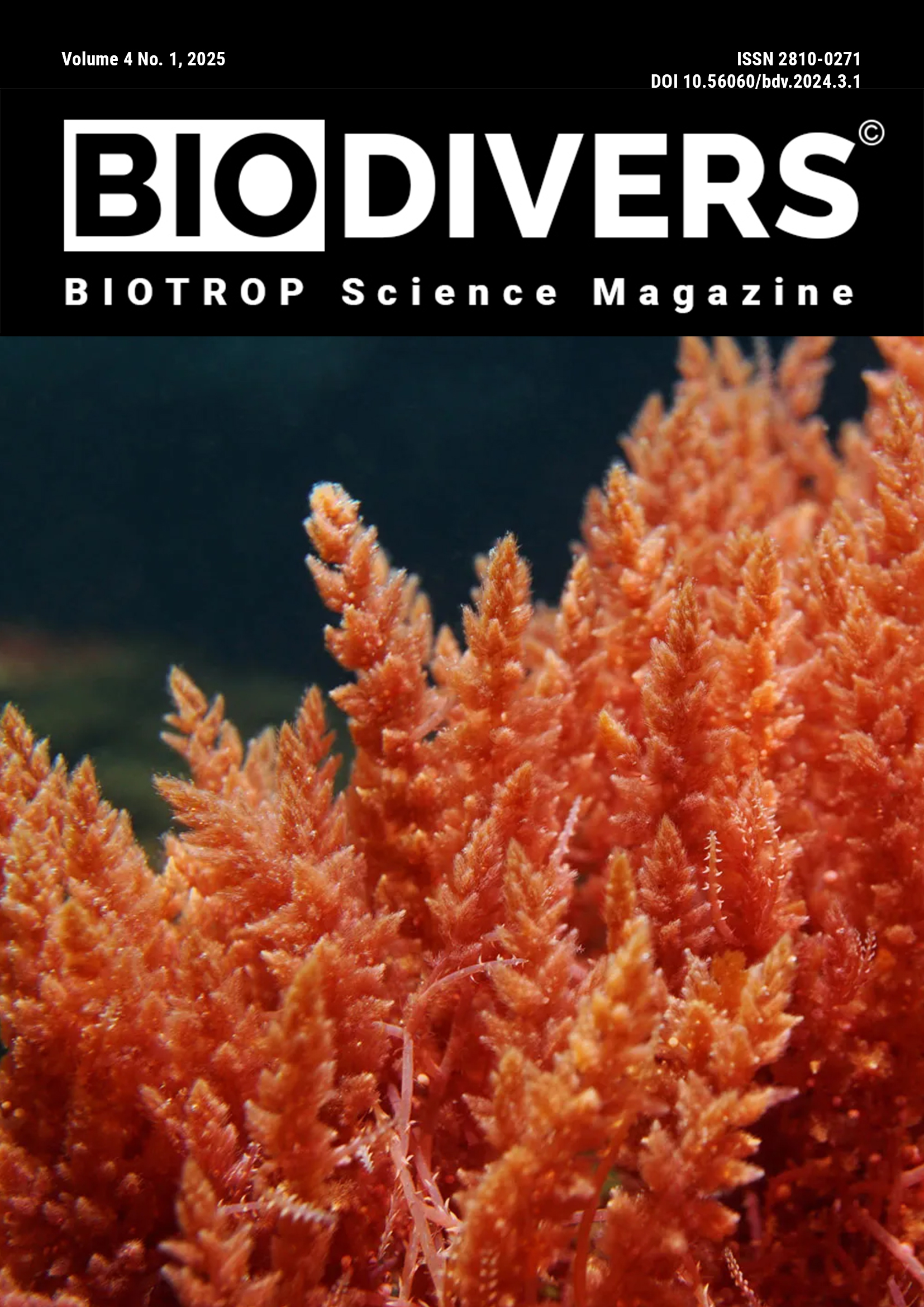
BIODIVERS Vol. 4 No. 1, 2025
KPCD, 2025Downloaded 33 times, Read 1739 times
Description
In this issue of BIODIVERS Vol.4 No.1, contains the following articles:
Topic 1: Effectiveness of DNA Barcoding Primers in Red Algae (Rhodophyta) Identification
Aidil Zaid Khan, Ardian Putra Fernando, Edo Agam Pamungkas, Ayu Andhira, Rifa Nur Ishlah, Denia Dwi Citra Resmi, Farida Damayanti, Dewi Rahmawati*
Red algae are essential in marine ecosystems and have wide applications in food, cosmetics, and pharmaceuticals. This study evaluates the effectiveness of DNA barcoding primers to accurately identify red algae species—a crucial step for biodiversity conservation and sustainable use.
Key Points:
- Red algae support marine biodiversity.
- Critical in biotechnology, food, and pharmaceutical sectors.
- Accurate identification ensures better conservation and use.
Topic 2: Ethnomedicinal Study and Phytochemistry Analysis of Antihypertensive and Anticholesterol Plants in Sukaharja Village, Banten, Indonesia
Rindita, Sherley, Muhammad Alifian Dewantara, Muhammad Nur, Akhmal*
Traditional knowledge in Sukaharja Village, Banten, reveals a rich diversity of medicinal plants used to treat hypertension and cholesterol. This study documents local practices and performs phytochemical analysis to validate their bioactive compounds and potential for herbal medicine development.
Key Points:
- 21 plant species identified with antihypertensive and cholesterol-lowering properties.
- Contains bioactive compounds like flavonoids, tannins, and phenols.
- Holds potential for development into modern herbal treatments.
Topic 3: The Effect of Mycorrhiza Application and Phosphorus Addition on AMF Spores Density and Pueraria javanica Growth
Risa Rosita, Jennifer Claudia Suryadi, Deden Dewantara Eris*
This research examines how mycorrhizal fungi and phosphorus fertilization affect the growth of Pueraria javanica and the density of AMF spores in the soil. The study supports the importance of microbial symbiosis in enhancing plant health and soil sustainability.
Key Points:
- Mycorrhiza increases Pueraria javanica growth and AMF spore density.
- Promotes sustainable agriculture with reduced chemical input.
- Supports soil fertility through natural symbiosis.
Topic 4: Risk Management of Genetically Modified Organism (GMO) Products: Experience from Indonesia, Malaysia, and Thailand
Dewi Suryani Oktavia, Rhomi Ardiansyah, H.M. Salman Alfarisi*
A comparative study exploring how Indonesia, Malaysia, and Thailand manage risks related to GMO products. It investigates regulatory frameworks, risk assessment practices, and public perception, offering insights into regional biosafety governance.
Key Points:
- Highlights policy and implementation differences in Southeast Asia.
- Emphasizes importance of public trust and biosafety regulations.
- Balances biotech innovation with environmental and health safeguards.